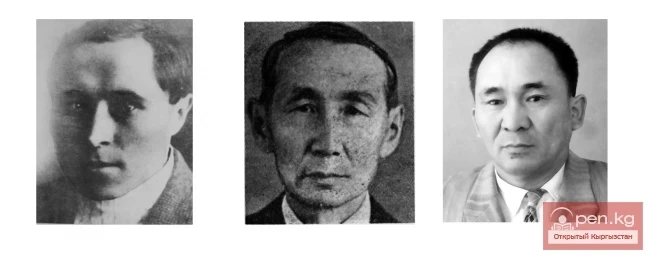Journalistic Activities of K. Banlinov, K. Rakhmatullin, and K. Malikov
Kasymaly Bayalinov (1902-1979) was born in the Kok-Moynok area of the current Ton district of the Issyk-Kul region. He is among the oldest Kyrgyz journalists and writers, pioneers of republican journalism and written literature. In 1919, K. Bayalinov went to Tashkent for a six-month regional Soviet-party course, after which he actively participated in the development of the youth movement in the republic, notably creating the first Komsomol organizations in At-Bashi, Kochkorka, and other ails of what is now Naryn region. From 1920 to 1925, he was a student at the Almaty Pedagogical Institute. After his studies, he initially worked as the editor of the Kyrgyz section of the Central Publishing House in Moscow, and later as the chief editor of the state publishing house of the republic.
In 1928, K. Bayalinov entered the All-Union Institute of Journalism in Moscow, graduating in 1933. He worked as an editor for the Jetty-Oguz MTS newspaper, and then as an editor at Kirgospizdat. During the Great Patriotic War, he edited the Issyk-Kul regional newspaper "Ysyk-Kel Pravdasy," and later the republican literary magazine "Sovettik Kyrgyzstan." K. Bayalinov constantly engaged in socio-political work, and after the war, he led the republican writers' organization for a long time. The journalist-writer's publicist speeches were characterized by great political sharpness and precise targeting. His pamphlet "Some Proposals to Mr. Pointon," infused with patriotic pathos and passionate civic conviction, received a wide response far beyond our homeland. This was an open letter to the British delegate in the UN General Assembly's Trusteeship Committee, first published in Russian in "Literaturnaya Gazeta" on October 11, 1947, and then in 1948 in Kyrgyz in the first issue of "Sovettik Kyrgyzstan." The publicist convincingly exposed the statements of the British delegate in an authoritative international organization, who claimed that the peoples in the Soviet republics were in the same situation as the peoples of Britain's colonial countries. This pamphlet by K. Bayalinov was long considered the first swallow and a model of Kyrgyz international journalism. K. Bayalinov is the author of numerous journalistic works, remarkable stories, novellas, and novels, and later he was awarded the honorary title of People's Writer of Kyrgyzstan.
Kalim Rakhmatullin (1903-1946) was born in the city of Tokmok in the Pishpek district. From 1923 to 1925, he studied at the workers' faculty of the Central Asian State University, and then at the university itself. From 1925 to 1927, he worked at the Central Asian Bureau of the Central Committee of the VKP(b), and was later transferred to Kyrgyzstan as head of the press department of the Kyrgyz Oblast Committee of the Party. From 1931 to 1935, he served as the responsible editor of the republican newspaper "Kyzyl Kyrgyzstan," then as the director of Kirgospizdat, and as a teacher and head of the department at the Kyrgyz Pedagogical Institute. From 1941 to 1946, he was the editor of the Kirgospizdat department and a senior researcher at the Institute of Language, Literature, and History of the Kyrgyz branch of the Academy of Sciences of the USSR.
K. Rakhmatullin made a significant contribution to the formation and development of Kyrgyz literary criticism and journalism. He wrote many publicist articles and literary studies, as well as several textbooks for schools. Among them are: "The Great Patriot - the Legendary Manas," "An Outline of the History of Kyrgyz Literature," "The Kyrgyz People in the Struggle for Their Homeland," and others. The talented publicist worked particularly fruitfully during the Great Patriotic War. His book "The Great Patriot - the Legendary Manas" was published in Russian in 1943. In collaboration with writer T. Sydykbekov, he wrote the play "Manas and Almambet," which was performed in republican theaters during the war. His literary and publicist articles "Early Poems of Aala," "The People's Akyn Alymkul," "The Creative Path of Joomart," and others are still studied by creative youth as examples of sincere respect and gratitude for talent and selfless service to their people and homeland.
A vivid example of how almost all well-known journalists and writers took their first creative steps in youth as rural and working correspondents is the life path of the people's poet and prominent public figure Kubanychbek Malikov (1911-1978). He was born in the village of Uch-Emchek in the Kant district of the Chui region. His childhood and youth were spent in the village of Tokoldosh near Pishpek. In 1926, he graduated from a rural primary school, and in 1934, he graduated from a pedagogical technical school in the city of Frunze. While studying in school and in the technical school, K. Malikov actively collaborated with the editorial offices of the newspapers "Leninchil Zhash" and "Kyzyl Kyrgyzstan," and the magazine "Kommunist" as a freelance correspondent. Even his early reports were distinguished by their relevance and timeliness. He responded to the most important events in the life of the young republic. His letters and reports told of new phenomena in the lives of rural residents, the aspirations of young men and women for education and various professions, the liberation of Kyrgyz women from feudal-tribal shackles, the struggle against other remnants of the past in people's consciousness, and the land-water reform and its role in transforming agriculture.
During his studies at the pedagogical technical school, K. Malikov actively participated in the work of the student literary circle and collaborated in the manuscript magazine "Ptenzy." All this influenced his confident continuation of journalistic activity in the editorial offices of republican newspapers after graduating from the technical school: he worked as the deputy editor of the youth newspaper "Leninchil Zhash," the responsible secretary of the editorial office of the newspaper "Kyzyl Kyrgyzstan," and as the editor of the magazine "Sovettik Kyrgyzstan."
The long-term fruitful journalistic and publicist activity of K. Malikov is vividly evidenced by the bibliography of his work in the book "Writers of Soviet Kyrgyzstan," published during his lifetime. In the section "Articles, Reviews, Essays," there are 59 titles of his newspaper and magazine publications in Kyrgyz and 32 titles in Russian. He frequently appeared on radio and television. In addition, he published collections of publicist articles and essays: "The Tale of Happiness," "Blood for Blood," "Leningrad During the War," "From the Valley of Jaiylchy," "On the Banks of the Chui Canal," "Meeting on the Shore of the Lake," "My Contemporaries and Fellow Writers," and others.
Below is an excerpt from K. Malikov's essay "The Young Tribe," published in the newspaper "Soviet Kyrgyzstan" in 1934:
“When the sun rose above the gardens and warmed the streets of Karakol, Sultan left for the whole day from the angry teahouse owner. He stopped at the clover market, sat down by the ditch with the murky water. After a dry crust of bread, he wanted to drink. And he lay for a long time on the bank of the ditch, occasionally leaning down to the cold stream.
After resting, Sultan stepped over the ditch and went to the carts that had come from the auls and villages. Near one cart sat a farmer having breakfast. Sultan smelled the delicious scent of bread from afar and, stepping silently, approached the farmer, silently extending his dry little hand.
Alybay barely recognized in this dirty little stray the son of his distant relative, who had left his native aul Taldysuu in hopes of finding food for his hungry family. Alybay sat Sultan next to him, and this unexpected warmth touched the boy. Sultan, long unaccustomed to tears, now cried so bitterly as if this kind uncle Alybay had inflicted the most bitter insult on him by breaking off a large piece of bread and urging him to eat.”
Read also:
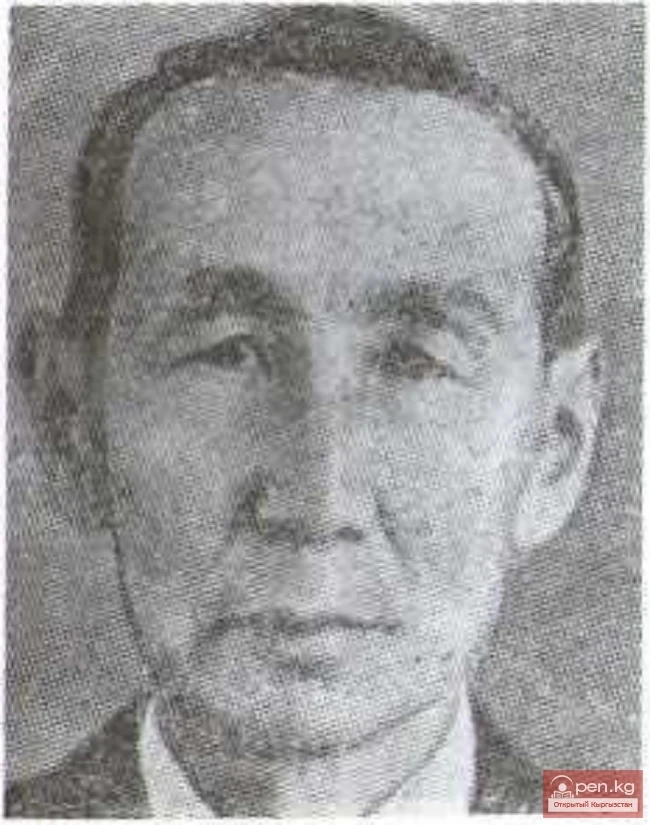
Prose Writer Kasymaly Bayalinov
Prose writer K. Bayalynov was born on September 25, 1902—September 3, 1979, in the Kotmaldy area...
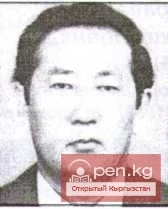
Bazarbai Shamsi (1937)
Bazarbaev Shamshi (1937), Doctor of Philosophy (1993), Professor (1995). Kyrgyz. Born in the...
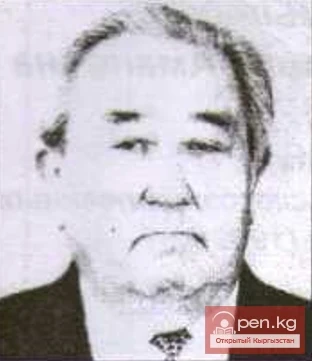
Zhumash Mamytov
Mamytov Jumash (1935), Candidate of Philological Sciences (1967), Professor (2001) Kyrgyz. Born in...
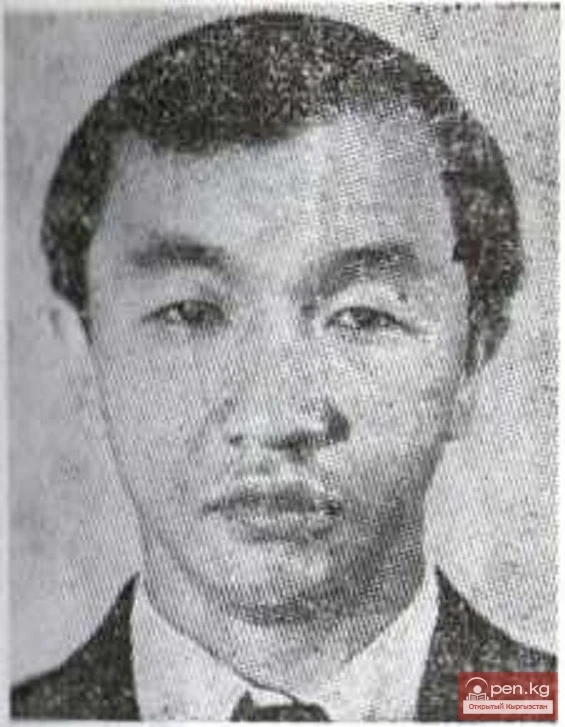
Critic, Literary Scholar Abdyldazhan Akmataliev
Critic and literary scholar A. Akmataliev was born on January 15, 1956, in the city of Naryn,...
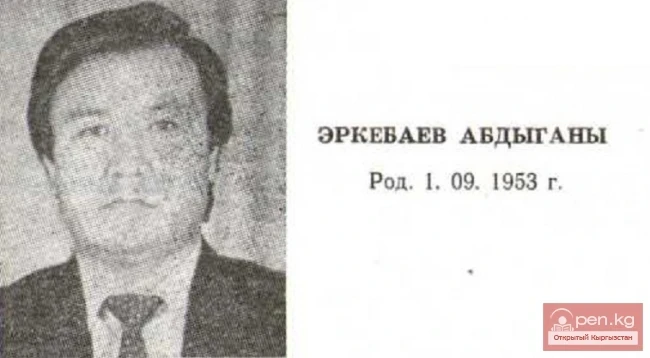
Critic, Literary Scholar Abdygany Erkebayev
Critic, literary scholar A. Erkebayev was born in the village of Kara-Teyit in the Alaï district...
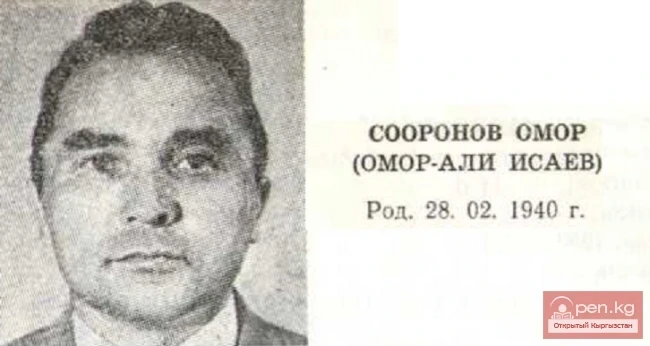
Poet, Critic, Literary Scholar Omor Sooronov
Poet, critic, literary scholar O. Sooronov was born in the village of Gologon in the Bazar-Kurgan...
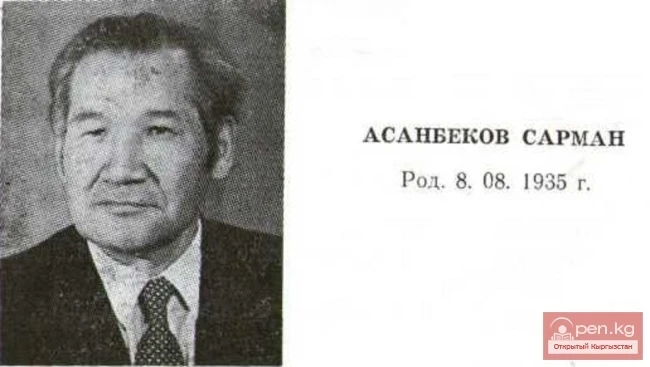
Poet, Art Historian Sarman Asanbekov
Poet and art critic S. Asanbekov was born in the village of Aral in the Talas region of Kyrgyzstan...
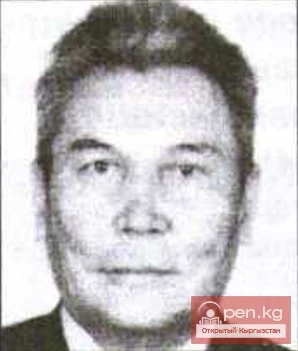
Doolotaliev Seyit
Doolataliyev Seyit (1940), Doctor of Economic Sciences (1993), Professor (1997) Kyrgyz. Born in...
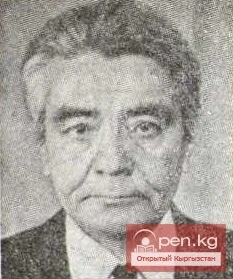
Critic, Literary Scholar, Prose Writer Sharshenbek Umetaliev
Critic, literary scholar, prose writer Sh. Umetaliev was born on February 10, 1925, in the village...
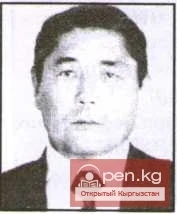
Beishekeev Namasbek (1932-2001)
Beyshekeev Namasbek (1932-2001), candidate of philological sciences (1965), professor (1990)....

Types of Insects Listed in the 2004 IUCN RLTS Not Included in the Red Book of Kyrgyzstan
Insect species listed in the 2004 IUCN RLTS, not included in the Red Book of Kyrgyzstan 1....
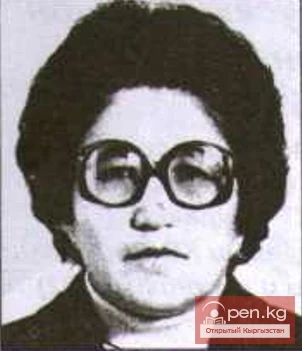
Toichubekova Burulkan
Toichubekova Burulkan (1932), Doctor of Philological Sciences (1994) Kyrgyz. Born in the village...
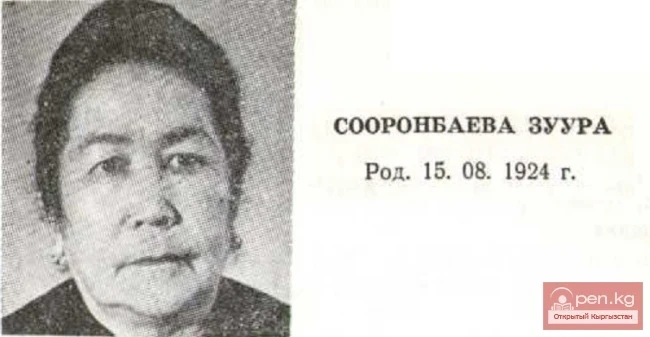
Prose Writer, Poet Zuurа Sooronbaeva
Prose writer, poet Zura Sooronbaeva was born in the village of Djolgolot in the present-day Ak-Suu...
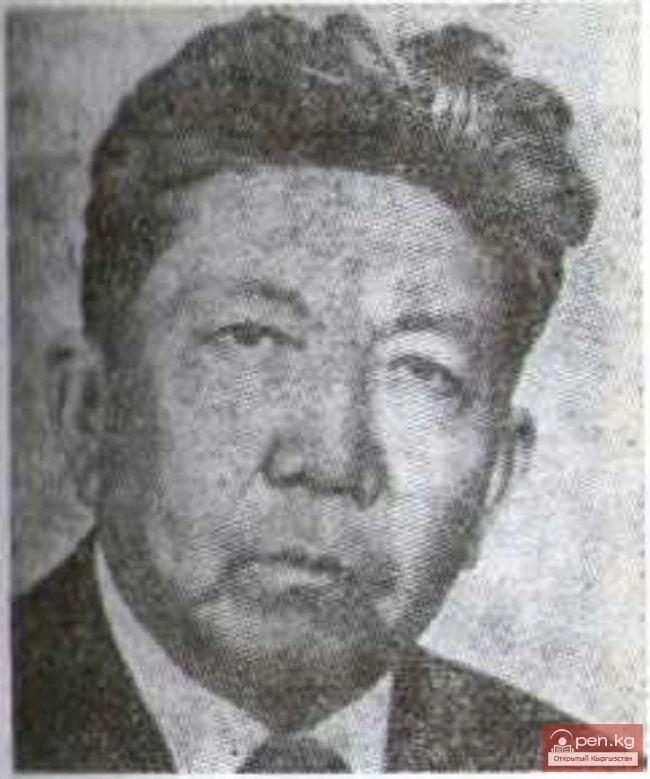
Poet Abdilda Belekov
Poet A. Belekov was born on February 1, 1928, in the village of Korumdu, Issyk-Kul District,...

Types of Insects Excluded from the Red Book of Kyrgyzstan
Insect species excluded from the Red Data Book of Kyrgyzstan Insect species excluded from the Red...
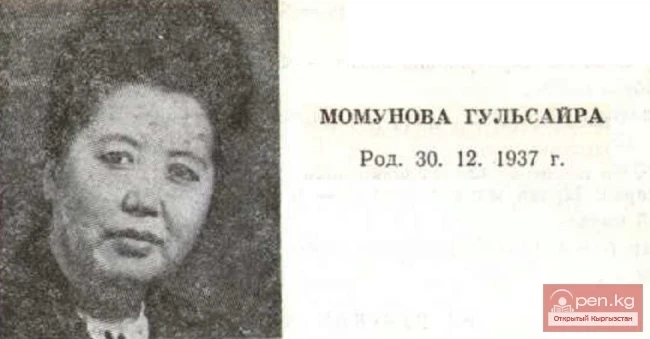
The Poet Gulsaira Momunova
Poet G. Momunova was born in the village of Ken-Aral in the Leninpol district of the Talas region...

The Poet Kubanych Akaev
Poet K. Akaev was born on November 7, 1919—May 19, 1982, in the village of Kyzyl-Suu, Kemin...

Prose Writer, Journalist Djapar Saatov
Prose writer, journalist Dzh. Saatov was born on February 15, 1930, in the village of Alchaluu,...
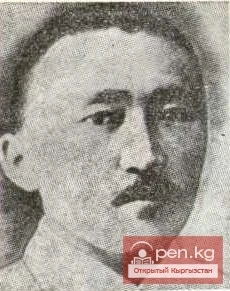
Poet, Linguist Kasym Tynystanov
Poet and linguist K. Tynystanov was born on September 9, 1901—November 6, 1938, in the village of...
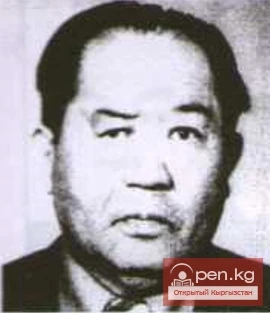
Abdykul Zhapаров
Zhapаров Abdykul (1920-1998), Doctor of Philological Sciences, Professor (1967). Kyrgyz. Born in...
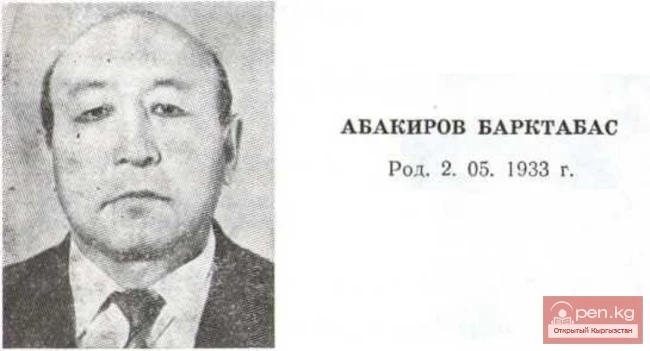
Poet, Journalist Barktabas Abakirov
Poet and journalist B. Abakirov was born in the village of Kum-Dyube in the Kochkor district of...
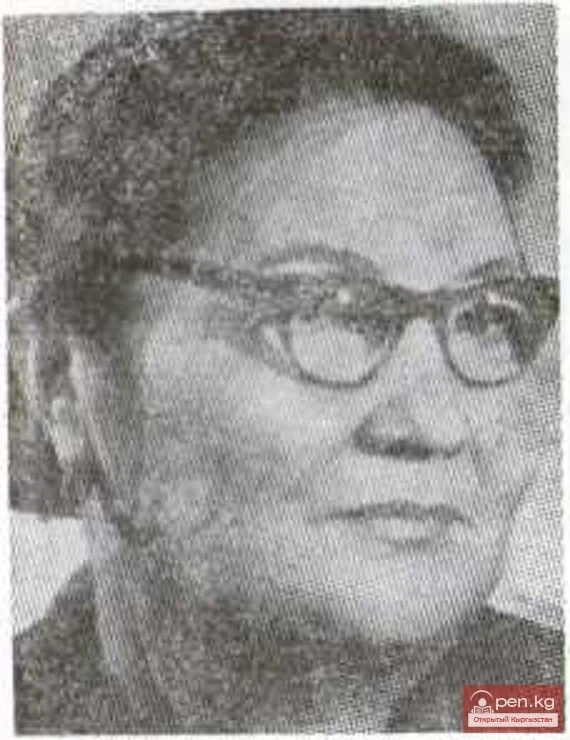
The Poet Tenti Adysheva
Poet T. Adysheva was born in 1920 and passed away on April 19, 1984, in the village of...
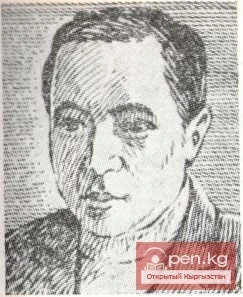
Critic, Literary Scholar Kalim Rakhmatullin
Critic and literary scholar K. Rakhmatullin was born in 1903 in the city of Tokmak, now in the...
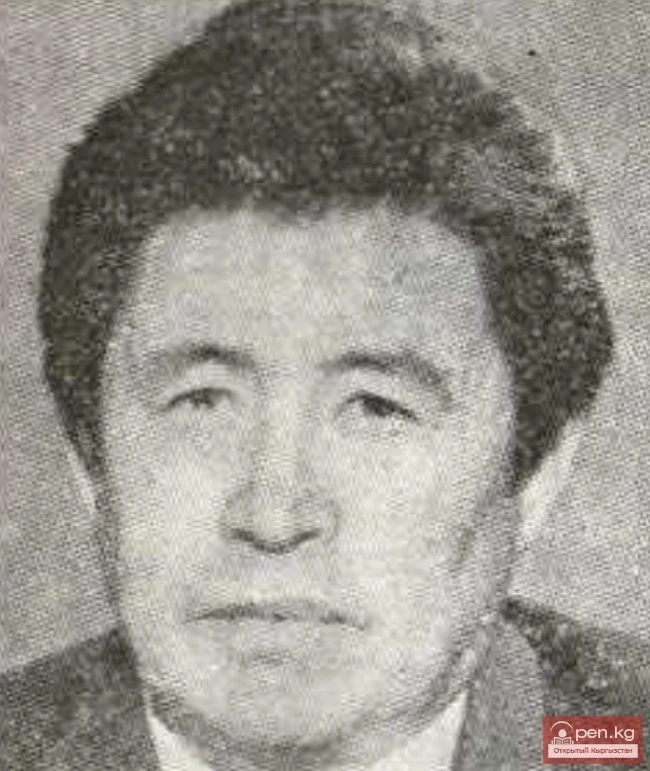
The Poet Kudaibergen Jumanaazarov
Poet K. Jumanaazarov was born on July 5, 1937, in the village of Jetigen, Toktogul district, Osh...

Types of Higher Plants Listed in the "Red Book" of Kyrgyzstan (1985)
Species of higher plants removed from the "Red Book" of Kyrgyzstan (1985) Species of...
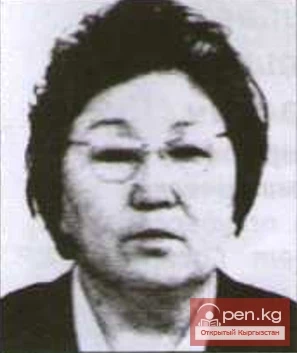
Kerimzhanova Bubu Dyikanbaevna
Kerimjanova Bubu Dyikanbaevna (1920-1993), Candidate of Philological Sciences, Corresponding...
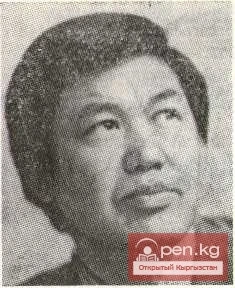
Poet, Prose Writer Anatoliy Omurkanov
Poet and prose writer A. Omurkanov was born on June 2, 1945, in the village of Chesh-Dyube, Manas...
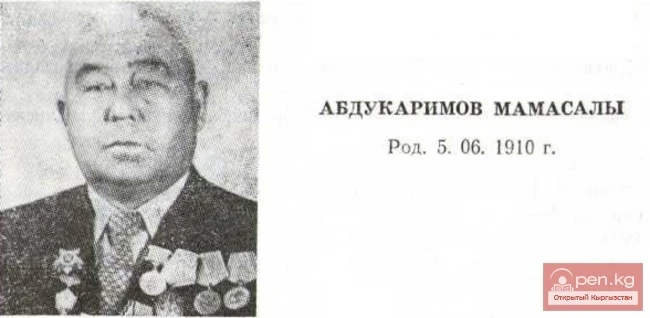
Prose Writer, Translator Mamasaaly Abdukarimov
Prose writer and translator M. Abdukarimov was born in the village of Japalak near the city of Osh...
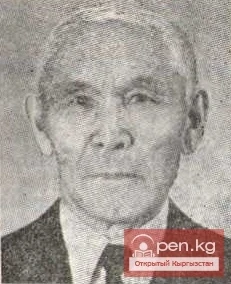
Literary scholar, prose writer, poet Dzaki Tashtemirov
Literary scholar, prose writer, poet Dz. Tashtemirov was born on October 15, 1913—October 7, 1988,...
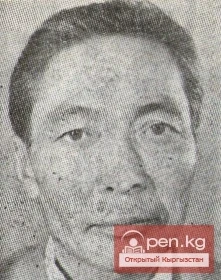
The title translates to "Poet Soviet Urmambetov."
Poet S. Urmambetov was born on March 12, 1934, in the village of Toru-Aigyr, Issyk-Kul District,...
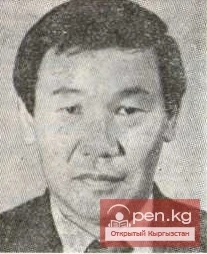
Theater Scholar, Critic, Translator Avas Syrymbetov
Theater scholar, critic, translator A. Syrymbetov was born on August 22, 1936, in the village of...
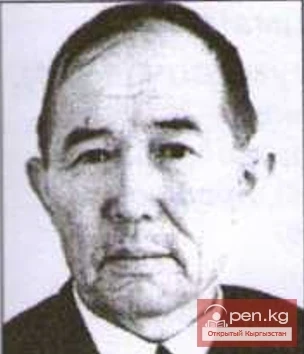
Shatemirov Kadir
Shatemirov Kadyr (1911-1995), Doctor of Chemical Sciences (1968), Professor (1970), Academician of...
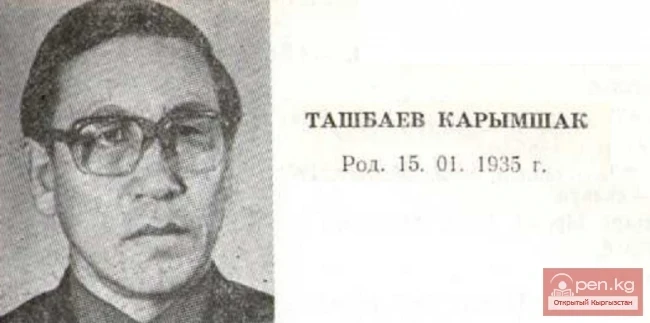
Poet Karymshak Tashbaev
Poet K. Tashbaev was born in the village of Shyrkyratma in the Soviet district of the Osh region...
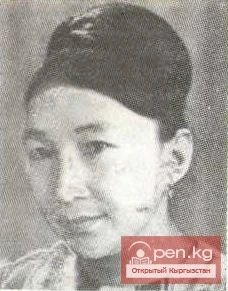
The Poet Jumakan Tynymseitov
The poet J. Tynymseitova was born on 11. 1929—29. 07. 1975 in the village of On-Archa in the...
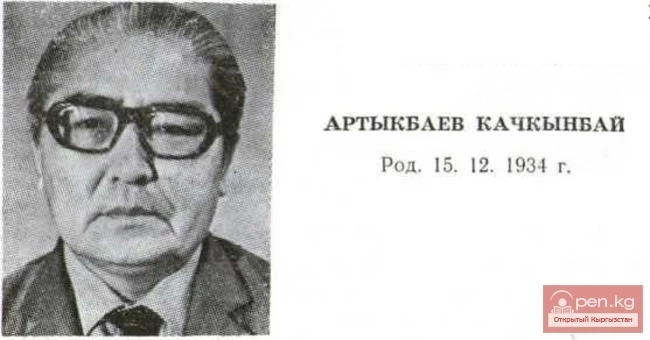
Critic, Literary Scholar, Poet Kachkynbai Artykbaev
Critic, literary scholar, poet K. Artykbaev was born in the village of Keper-Aryk in the Moscow...
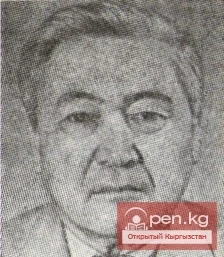
Prose Writer, Translator Bakan Sexenbaev
Prose writer and translator B. Sexenbaev was born on August 20, 1932, in the village of Burana,...
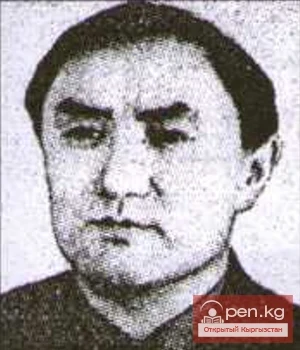
Saliev Aziz
Saliev Aziz (1925), Candidate of Philosophical Sciences, Academician of the National Academy of...

Critic, Literary Scholar A. Sadykov
Critic and literary scholar A. Sadikov was born in the village of Kara-Suu in the At-Bashinsky...
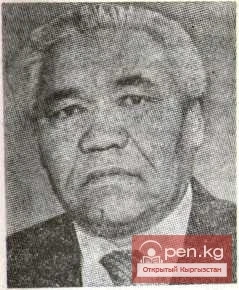
Prose Writer Kachkynbay (KYRGYZBAI) Osmonaliev
Prose writer K. Osmonaliev was born on March 5, 1929, in the village of Chayek, Jumgal district,...
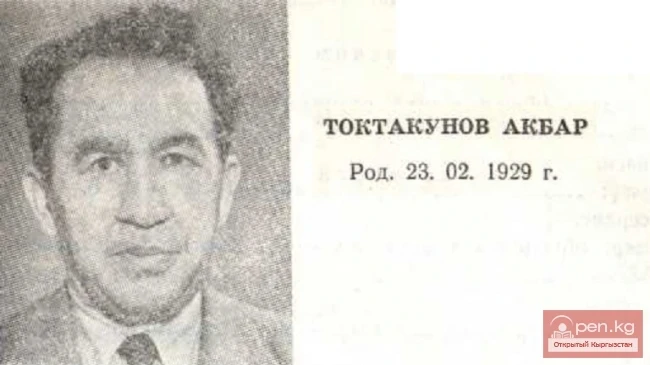
The Poet Akbar Toktakunov
Poet A. Toktakunov was born in the village of Chym-Korgon in the Kemin district of the Kyrgyz SSR...
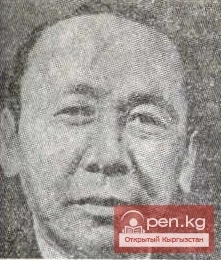
Poet Mukambetkalyy Tursunaliev (M. Buranaev)
Poet M. Tursunaliev was born on January 11, 1926, in the village of Alchaluu, Chui region of the...
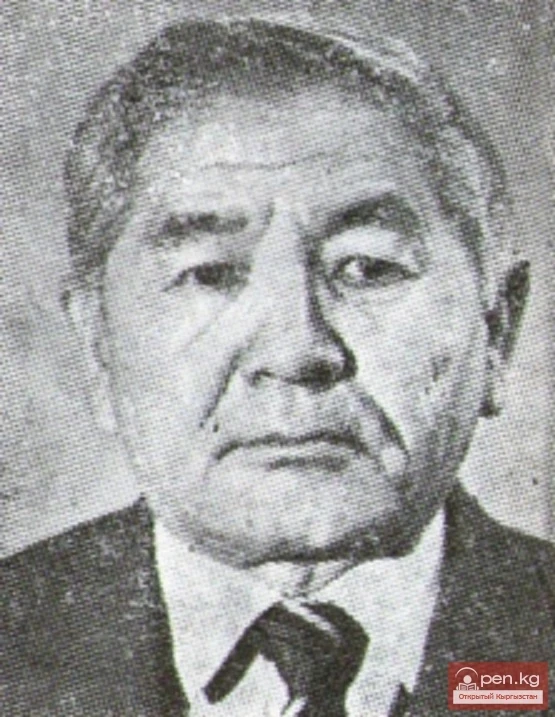
Poet Dzhaparkul Alybaev
Poet Dzh. Alybaev was born on October 12, 1933, in the village of Birikken, Chui region of the...
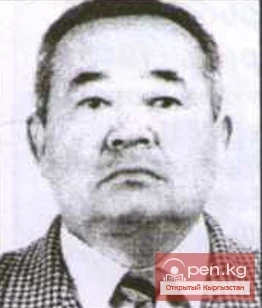
Zhorobekov Zholbors
Zhorobekov Zholbors (1948), Doctor of Political Sciences (1997) Kyrgyz. Born in the village of...
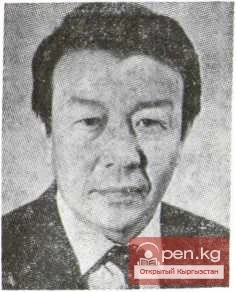
Critic, Literary Scholar Sanarbek Karymshakov
Critic, literary scholar S. Karymshakov was born on October 20, 1941, in the village of Kyzart,...
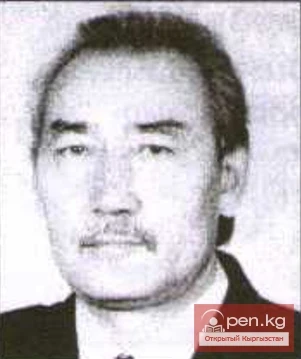
Kenesariyev Tashmanbet
Kenesariyev Tashmanbet (1949), Doctor of Historical Sciences (1998), Professor (2000) Kyrgyz. Born...

General Geographic Characteristics and Development of Tourism in the Kyrgyz Republic.
The Kyrgyz Republic is located in the northeastern part of Central Asia, in the very...
